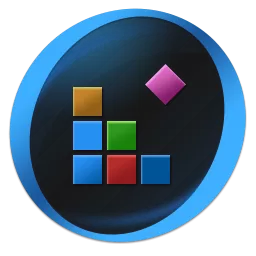Most Commented
Game Dev Kickstart: Libgdx & Java





Description material

Game Dev Kickstart: Libgdx & Java
Published 4/2023
MP4 | Video: h264, 1280x720 | Audio: AAC, 44.1 KHz
Language: English | Size: 5.12 GB | Duration: 9h 48m
Create a Fully Functional 2D Video Game for FREE Using LibGDX and Java!
What you'll learn
Create stunning cross-platform 2D games with LibGDX and Java
Learn best practices for using LibGDX
Handle keyboard and touch input from the player
Create a games with multi-screen functionality
Create a fully functional game from the ground up
Render and animate game characters
Add sounds and music to a game
Requirements
Access to a computer with Windows, Mac, or Linux
Basic knowledge of Java (for now)
(Optional) Access to an Android device
Description
Do you want to learn how to create amazing 2D video games for FREE with LibGDX?I'm Brandon and I'm going to help you master LibGDX by creating a complete and fully functional cross-platform 2D video game.LibGDX is a free and open-source game development framework. Game development frameworks are collections of libraries and tools that provide building blocks that developers can use to create their own games, and are more lightweight and flexible than game engines, like Unity 3D, Unreal Engine, and Godot.LibGDX also provides cross-platform deployment, meaning that a game created with LibGDX can be run on multiple platforms, including Windows, Mac, Linux, Android, iOS, and web browsers.(NOTE: This course requires at least a basic knowledge of the Java programming language. I'm currently in the process of adding a short Java crash course to this course, but until then, please be aware that you will need to know some Java in order to get the most out of this course. Taking a short 2-3 hour Java course on YouTube should be more than enough.)The Game Dev Kickstart course is very comprehensive and is full of extremely valuable information for creating incredible 2D games using LibGDX. We'll begin by installing the JDK (Java Development Kit) and the IntelliJ IDEA IDE, which we'll be using to write the code for our game. After that, we'll jump right into learning all about LibGDX by creating a complete 2D fighting game called Stick Figure Showdown. Among the dozens of topics we will be covering throughout the course, we'll learn how to:draw images to the screen and animate themmanage assets (images, audio, etc.) using an asset managerwork with cameras and viewports for full control over how our game appears on different screen resolutionshandle keyboard and touch input from the playergenerate fonts using the Freetype extensiondisplay a HUD (Heads-Up Display)create and use texture atlases for enhanced performanceadd text and clickable buttons to the screenadd sound and music to our gameadd AI (Artificial Intelligence) for the opponent fightercreate and switch between various types of screens (main menu, settings, etc.)use Scene2D for more efficient UI (User Interface) layoutallow the player to change and save various settings of the game (difficulty, fullscreen mode, etc.)EXTRA: add Android functionality to our game!You'll also get access to all of the resources and code for the projects in this course!So what are you waiting for? Join now and let's start developing games today!
Overview
Section 1: Introduction
Lecture 1 Course Introduction
Lecture 2 Java Crash Course Coming Soon!
Section 2: The JDK & IntelliJ IDEA
Lecture 3 Install the JDK (Java Development Kit)
Lecture 4 Install IntelliJ IDEA
Lecture 5 Set a Java Home Environment Variable
Section 3: LibGDX
Lecture 6 What Is LibGDX?
Lecture 7 Setting Up LibGDX
Lecture 8 LibGDX Basics
Section 4: Stick Figure Showdown
Lecture 9 Create & Import the Project
Lecture 10 Import & Manage the Assets
Lecture 11 Create the Game Screen
Lecture 12 Window Size, Cameras & World Units
Lecture 13 Viewports
Lecture 14 Create the Fighter Class
Lecture 15 Draw & Animate the Fighters
Lecture 16 Update the Fighters' Facing
Lecture 17 Handle Keyboard Input
Lecture 18 Define the Ring Bounds
Lecture 19 Attacking & Blocking
Lecture 20 Getting Hit
Lecture 21 Generate the Fonts
Lecture 22 HUD (Heads-Up Display) 1: Wins/Loss Ratio and Difficulty Text
Lecture 23 HUD (Heads-Up Display) 2: Fighter Healthbars
Lecture 24 Set Up the Rounds
Lecture 25 Improve the Round Timer
Lecture 26 Handle Touch Input
Lecture 27 Texture Filters
Lecture 28 Texture Atlases & Packing Textures
Lecture 29 Game Over
Lecture 30 Pausing the Game
Lecture 31 Add Sounds & Music
Lecture 32 Add Opponent AI
Lecture 33 Blood 1: Blood Splatters
Lecture 34 Blood 2: Blood Pools
Lecture 35 Main Menu Screen 1: Set Up the Widgets
Lecture 36 Main Menu Screen 2: Draw the Widgets
Lecture 37 Clicking the Buttons
Lecture 38 Changing the Fighters
Lecture 39 Manage the Settings
Lecture 40 Settings Screen 1: Set Up the Widgets
Lecture 41 Settings Screen 2: Draw the Widgets
Lecture 42 Changing the Settings
Lecture 43 Create the Loading Screen
Lecture 44 Conclusion
Section 5: EXTRA: Adding Android Functionality
Lecture 45 Install the Android SDK
Lecture 46 Create & Import a New Project
Lecture 47 Running LibGDX on Android
Lecture 48 Transfer the Code
Lecture 49 Fix the Audio
Lecture 50 Change the Settings Screen
Lecture 51 Fighter Controls 1: Set Up & Draw the Sprites
Lecture 52 Fighter Controls 2: Attacking & Blocking
Lecture 53 Fighter Controls 3: Joystick Movement
Section 6: Bonus
Lecture 54 Bonus Lecture
Beginner game developers,Anyone who wants to master LibGDX for 2D game development,Anyone who wants to learn how to create a complete 2D game

https://fikper.com/cZqWCSOSfK/Udemy.com.-.Game.Dev.Kickstart.LibGDX..Java.part1.rar.html
https://fikper.com/JsnJhLlHfg/Udemy.com.-.Game.Dev.Kickstart.LibGDX..Java.part2.rar.html
https://fikper.com/MsHxmBIKuF/Udemy.com.-.Game.Dev.Kickstart.LibGDX..Java.part3.rar.html
https://rapidgator.net/file/c7e7dd534764a1759c17a58931ba3eab/Udemy.com.-.Game.Dev.Kickstart.LibGDX..Java.part1.rar
https://rapidgator.net/file/60f06829064fdc8103978577f78a9596/Udemy.com.-.Game.Dev.Kickstart.LibGDX..Java.part2.rar
https://rapidgator.net/file/6e6e4df1249dfc429ce2cd359d900c5f/Udemy.com.-.Game.Dev.Kickstart.LibGDX..Java.part3.rar
https://nitroflare.com/view/8C77416D5554285/Udemy.com.-.Game.Dev.Kickstart.LibGDX..Java.part1.rar
https://nitroflare.com/view/045C1AC6CC89D9C/Udemy.com.-.Game.Dev.Kickstart.LibGDX..Java.part2.rar
https://nitroflare.com/view/D7EB05878767581/Udemy.com.-.Game.Dev.Kickstart.LibGDX..Java.part3.rar

Join to our telegram Group
Information
Users of Guests are not allowed to comment this publication.
Users of Guests are not allowed to comment this publication.
Choose Site Language
Recommended news
Commented


![eM Client Pro 9.2.1735 Multilingual [Updated]](https://pikky.net/medium/wXgc.png)



![[PORTABLE] Franzis COLOR projects professional 7.21.03822 (x64)](https://i.postimg.cc/ZnGnTs6q/Franzis-COLOR-projects.png)


![Movavi Video Editor 24.0.2.0 Multilingual [ Updated]](https://pikky.net/medium/qhrc.png)

